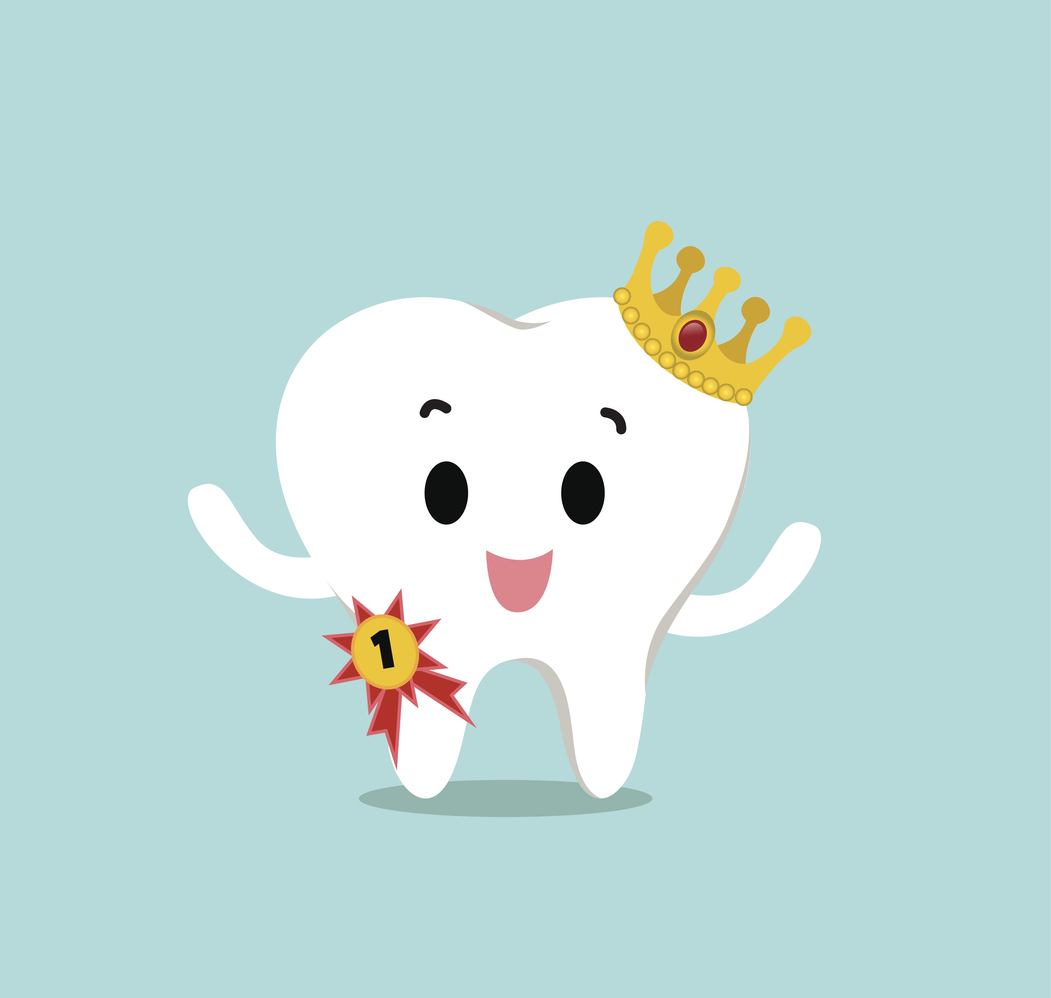Different Types of Crowns for Teeth
Posted on February 27th, 2025 | Christopher Neal

Dental crowns are an effective restorative dental treatment. They are custom-made tooth caps that restore the size, shape, strength, and cosmetic appearance of damaged or weakened teeth. Crowns are often used when a tooth has a large cavity, has undergone a root canal, or has been chipped or fractured. They help protect the remaining tooth structure while improving functionality and aesthetics.
When Would My Child Need a Dental Crown?
Cavity fillings are a common procedure in pediatric dentistry. They repair damage to teeth caused by tooth decay. Sometimes, if a cavity goes unnoticed for a long time, a dental crown may be necessary in addition to a filling or root canal. This is because when a cavity grows, it degrades the structural integrity of the tooth.
After a natural tooth is hollowed out to remove decay and repaired with a filling, the tooth is more susceptible to injury. A crown covers the entire tooth and restores its strength and structure. Crowns may also be recommended as a restorative treatment to repair fractured teeth.
Not all children require crowns for cavities or dental injuries. However, pediatric dental crowns are commonly placed on baby teeth that have severe decay or structural damage. These crowns ensure the tooth remains intact until it naturally falls out, preserving proper spacing for permanent teeth. Teens and older children can also benefit from crowns when they have damaged adult teeth.
Different Tooth Crown Types
There are several types of pediatric dental crowns available, each made from different materials suited for various needs. The right choice depends on factors such as durability, appearance, and cost. Let’s explore the different types of crowns and how they compare.
Your dentist may recommend any of the following options:
- Stainless Steel Crowns
- Composite Crowns
- Ceramic or Porcelain Crowns
Each of the crown materials listed above comes with unique advantages and disadvantages.
Stainless Steel
Stainless steel crowns are essentially metal tooth caps. They are not the same color as natural teeth unless coated with a veneer. These are often called “porcelain fused to metal” crowns.
Traditional stainless steel crowns are silver in color, which makes them quite noticeable. They are extremely durable and often more affordable than other options. If your child needs a crown on one of their molars or a baby tooth, stainless steel can be a great choice.
Pros of Stainless Steel Crowns:
- Highly durable and resistant to wear
- More affordable than composite or ceramic crowns
- Can be placed in a single dental visit, reducing treatment time
- Withstand heavy chewing forces without chipping or breaking
Cons of Stainless Steel Crowns:
- More noticeable compared to tooth-colored options
- May cause mild gum irritation or metal sensitivity
- Requires more removal of natural tooth structure compared to some other crown types
Composite Crowns
Composite crowns are made from a tooth-colored resin material that blends in naturally with surrounding teeth. They are often used for restoring front teeth, as they provide a more aesthetic option compared to stainless steel. Composite crowns are a good choice for minor to moderate tooth damage, such as cavities or small fractures.
Pros of Composite Crowns:
- Natural tooth-colored appearance
- Less expensive than ceramic or porcelain options
- Can be applied in a single visit (in some cases)
Cons of Composite Crowns:
- Less durable than stainless steel or ceramic crowns
- More prone to staining and wear over time
- May require replacement sooner than other types of dental crowns
Ceramic or Porcelain Crowns
Ceramic or porcelain crowns are an excellent option for front teeth and other visible areas. These crowns closely mimic the translucency and color of natural teeth, providing a seamless restoration. This makes them cosmetically preferable to metal crowns.
Pros of Ceramic/Porcelain Crowns:
- Highly aesthetic, blends with natural teeth
- Stronger and more durable than composite crowns
- Resistant to stains and discoloration
Cons of Ceramic/Porcelain Crowns:
- More expensive than composite and stainless steel crowns
- Can be prone to chipping (compared to metal-based crowns)
- Requires multiple appointments
Visit Chicago kiDDS for Dental Crowns
If your child has injured a tooth or has a severe cavity, they may require a dental crown. If a dental restoration is necessary, the team at Chicago kiDDS Pediatric Dentistry can help. A permanent crown could mean the difference between a healthy smile and tooth extraction, so contact us to schedule an appointment.
As one of the best children’s dentists in Palos Heights, it’s our mission to protect your child’s oral health and smile development. Call us at (708) 448-6700 to book!












